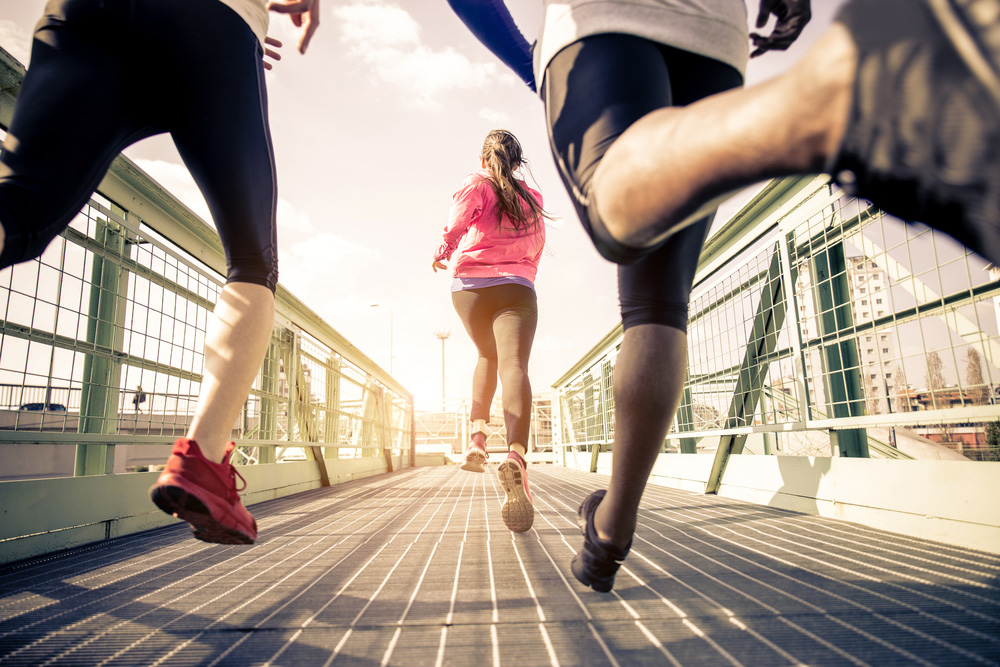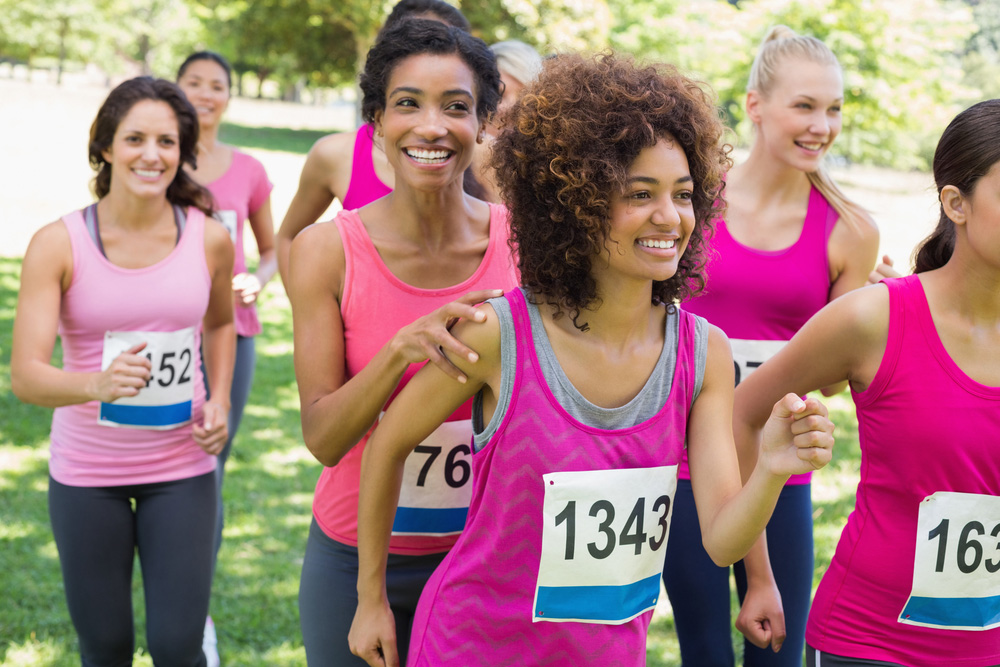
If the running bug hasn’t hit you yet, some recent research will get you hitting the park stat. According to a study by Glasgow Caledonian University, running regularly really does make you happier, especially when you do it with others. The researchers questioned over 8,000 runners who are registered with Parkrun UK, part of the global organisation that plans free, weekly 5km runs, and Strava app users about health and wellbeing. Eighty-nine percent of runners said running regularly made them happier and had a positive impact on their mental health and body image. As well as feeling more confident, they felt running with others and sharing their achievements on an app gave their social lives a boost and made them feel they were part of a community.
As the President and Founder of the Beirut Marathon Association, May El Khalil is of course an avid believer that running with others encourages regular exercise, helps people grow and boosts a general sense of wellbeing. “Running not only benefits your health, it also makes you a more positive, down to earth, and sociable person,” El Khalil says. “It's the space and time to think big and with every step and let your imagination take you where it will.” She adds running is like “the money you are investing in a bank, when something goes wrong, you can count on it to support you.”

As well as giving you a feeling of tremendous satisfaction because you have achieved something, there’s that naturally induced runner's high thanks to those pleasure-increasing endorphins. The endorphins, the group of neurotransmitters that are released during exercise, reduce discomfort and increase pleasure, which helps runners to push on. In 2008, a German study of long distance runners showed that periods of robust exercise produce endorphins and that the higher the endorphin levels, the greater the degree of euphoria experienced.
“When I run, I have a feeling of appreciation for my body and its strength. Running always gives too, the more you do it, the better you get. I learned you can compare any skill to running. And the added bonus is the high of the endorphins,” Rima Rantasi, an English instructor at the American University of Beirut, says.
As well as the mental benefits, going for a run offers lots of physical ones, including boosting blood circulation, which brings blood to our muscles, colour to our skin, helps us focus more and flushes out toxins and lactic acid. Plus it increases our Basal Metabolic Rate and strengthens our lungs, muscles, bone density, immune system and, yes, heart. And contrary to popular belief, hitting the pavement (or the gym if there’s adverse weather) may actually help prevent arthiritis rather than cause it, as it increases the fluid to the knee joints. Running, a great exercise for people of all ages, also helps coordination.

RUNNING TIPS
- Take 10 minutes to warm-up your muscles before a run. Stretching is great, but don’t stretch cold muscles. So, before you begin stretching, jog lightly to warm-up muscles.
- Run at a slow pace after the warm-up, adding spouts of speed throughout the run varying the speed and times of the speed sections, from 15 seconds to 2 minutes.
- Try running while looking straight ahead. Focus on a point about 10 metres in front and run in a straight line with your back straight. Let arms swing naturally and in rhythm with your legs while loosely cupping your hands.
- Aim to drink about two litres of fluid a day to be properly hydrated. During training you will need more than this as we lose on average 500-1,000ml of fluid per hour.
- Focus on your breathing, push your stomach out when you breathe in and relax it when you breathe out. Take deep breaths on the intake and exhale suddenly. Try to inhale and exhale as you land on your left foot.
- Smile while you run to let go off tension.
















